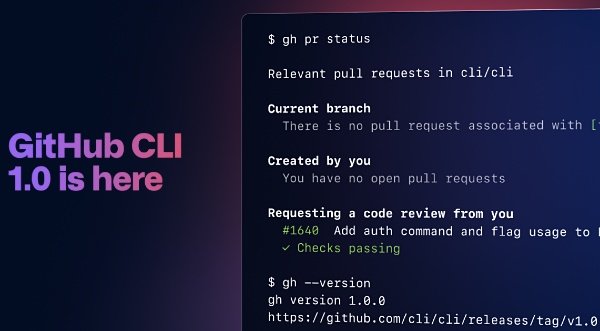
- #Github cli ssh how to
- #Github cli ssh install
- #Github cli ssh software
- #Github cli ssh mac
For more information, see " Troubleshooting cloning errors.
The default branch you want to clone still exists. For more information, see " Troubleshooting cloning errors." You have permission to access the repository you want to clone. If you're unable to clone a repository, check that: When cloning a repository it's possible that you might encounter some errors. > remove: Total 10 (delta 1), reused 10 (delta 1) > Unpacking objects: 100% (10/10), done. > remote: Compressing objects: 100% (8/8), done. $ git clone > Cloning into `Spoon-Knife`. Type git clone, and then paste the URL you copied earlier. Īlternatively, to clone your repository in Desktop, click Set up in Desktop and follow the prompts to complete the clone.Ĭhange the current working directory to the location where you want the cloned directory. To clone the repository using an SSH key, including a certificate issued by your organization's SSH certificate authority, click SSH, then click. For example, if youre using a personal laptop, you might call this key 'Personal laptop'. In the 'Title' field, add a descriptive label for the new key. In the 'Access' section of the sidebar, click SSH and GPG keys. To clone your repository using the command line using HTTPS, under "Quick setup", click. In the upper-right corner of any page, click your profile photo, then click Settings. It's often made if you don't initialize the repository with a README when creating it. To clone and open the repository with GitHub Desktop, click Open with GitHub Desktop.įollow the prompts in GitHub Desktop to complete the clone.įor more information, see " Cloning a repository from GitHub to GitHub Desktop." Cloning an empty repositoryĪn empty repository contains no files. Most of the popular repositories will give you web interface access to the application, and here’s how it looks like on Github:Īfter this step, you’re ready to start using Git.On, navigate to the main page of the repository. You need to give your public key to the repository in order to pair the Git server with your local machine (that’d be steps 4. 
When you create private/public SSH keys on your machine (that’s what you did in the above steps), it’s not enough. open file /home/your_username/.ssh/id_rsa.pub with your favorite text editor, and copy contents to your Git repository’s keys field ( GitHub, beanstalk, or any other repository provider), under your account.ssh-keygen -t rsa (when prompted, enter password, key name can stay the same).Open the file you’ve just created ~/.ssh/id_rsa.pub with your favorite text editor, and copy contents to your Git repository’s keys field (GitHub, beanstalk, or any other repository provider), under your account.Execute the following command: ssh-keygen -t rsa (when prompted, enter password, key name can stay the same).Navigate to your home directory by typing: cd ~/.
#Github cli ssh mac
Note: your_home_directory is either C:\Users\your_username (on Windows Vista / 7 / 8 / 10), or C:\Documents and Settings\your_username (on Windows XP) Mac Be sure that you don’t copy any whitespace while copying public key’s content (id_rsa.pub).


Open file your_home_directory/.ssh/id_rsa.pub with your favorite text editor, and copy contents to your Git repository’s keys field ( GitHub, beanstalk, or any other repository provider), under your account.Type in the following: ssh-keygen -t rsa (when prompted, enter password, key name can stay the same).Open Git Bash that you just installed (Start->All Programs->Git->Git Bash).
#Github cli ssh install
Go to this address, and download Git for Windows, after the download install it with default settings. In this quick guide, we’ll walk you through the process of creating SSH keys on Windows, Mac, and Linux systems, empowering you to access and collaborate on your Git projects with enhanced security. #Github cli ssh how to
Whether you’re an experienced developer or just starting your coding journey, understanding how to generate SSH keys for Git authorization is an essential skill to ensure the integrity and privacy of your code.
#Github cli ssh software
Securing your Git interactions with SSH keys is a fundamental aspect of software development today, offering a secure and convenient way to authenticate with remote repositories.







 0 kommentar(er)
0 kommentar(er)
